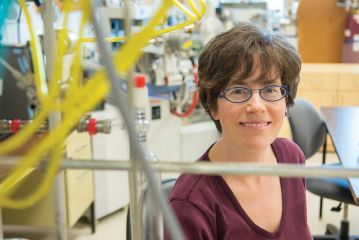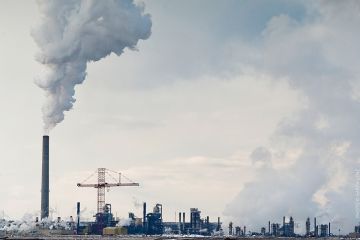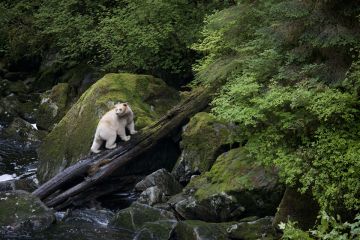Inuvialuit delegation shares climate change displacement with scientists

Climate displacement is underway around the globe and scientists are starting to learn about that reality from those experiencing this first-hand.
A delegation of young Inuvialuit leaders from Tuktoyaktuk, NWT, travelled more than 2,300 km to Victoria to meet with government scientists as part of a three-year CIFAL Victoria project on what life is like living with the impacts of climate change and climate displacement on their doorstep.
During a two-day gathering in March, the Inuvialuit delegates presented to Environment and Climate Change Canada scientists developing Canada’s Changing Climate Report 2025, the national assessment of climate change.
The Canadian Arctic has warmed about three times faster than the global average rate. Delegates explained to the scientists that these changes are impacting food systems, health and well-being. The youth highlighted the complexities of life in the Northwest Territories, where people are witnessing shifting shorelines, alarming rates of erosion and thawing permafrost.
Houses in Tuktoyaktuk are already being relocated as coastal erosion, sea-level rise and thawing permafrost put houses in the community at risk. Inuvialuk teacher Atjgaliaq, Dwayne Drescher recounted to the group his experience being raised in Tuktoyaktuk in an area lost to coastal erosion. He shared a memory of driving in Tuktoyaktuk with his family, telling them as he pointed at what was then his coastal home, “That is where I was raised.” His children were shocked and replied, “In the ocean!?”
Oral testimonies made up only one part of the presentation to scientists. Participatory art collaborations were also used to share knowledge of changing climates:
- Brian Kowikchuk presented a sneak peek of a mural that will be unveiled this spring at the Mangilaluk School in Tuktoyaktuk. “The mural came from a desire to help the community’s youth grieve what is being lost [due to climate change] and find ways to greet the water, as it rises around them, more positively,” said Kowikchuk.
- A preview Happening to Us, the youths’ climate change documentary, was screened. The documentary is set for release in late 2024.
- A music video Don’t Give Up, a song about life in Tuktoyaktuk and how youth don’t want to relocate from their home, made with the film company N’we Jinan.
Youth leaders included Brian Kowikchuk, Carmen Kuptana, Eriel Lugt and Darryl Tedjuk. They have been at the centre of an international research project called Carving out Climate Testimony: Inuit Youth, Wellness and Environmental Stewardship. Love of the land, and community, were core themes of the stories they shared in the collaborative project.

Dr. Jen Bagelman and Dr. Karla Jessen Williamson present an overview of their research project at the delegation. Photo credit: Carmen Koessler
Project co-leads Jen Bagelman (Newcastle University) and Karla Jessen Williamson (University of Saskatchewan) aim to centre youth voices and leadership in a global conversation about how climate change affects their communities.
“I am incredibly proud of these Inuvialuit young leaders who powerfully convey their knowledge in ways that always keep their wider communities in heart and mind.”
- Project co-lead Jen Bagelman (Newcastle University)
“There needs to be more capacity-building to engage deeply and respectfully with northern Indigenous communities around climate change,” says Williamson. “There should be a two-way sharing of knowledge between scientists working in the Arctic and Inuit communities.”
The room was filled with emotions like pride, sadness and joy as the young leaders spoke their truths. Indigenous artist Mo Dawson captured highlights from the gathering by creating a visual map of topics discussed each day.
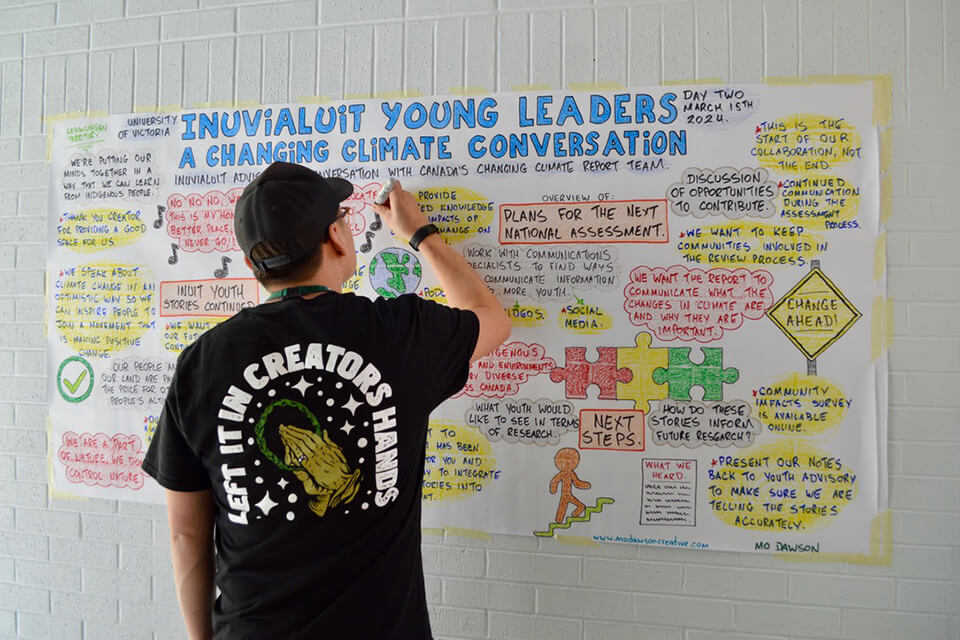
“This gathering has been a great example of creating space and the democratization of developing these reports,” said Sarah Wiebe, project researcher. “Having more meaningful exchanges throughout these processes is so important.”
At the end of the two-day gathering, representatives from Environment and Climate Change Canada committed to incorporating the young leaders’ knowledge, as evidence, into their report.
“I’m really grateful for what is the start of an ongoing conversation. Most people in Canada live within 100 km of the US border, so including [the Inuvialuit delegates’] perspectives allows us to inform Canadians and think about what is happening in places most people don’t often see or think about. [Their] contributions will help make these reports very real.”
- Greg Flato, director of Climate Research with Environment and Climate Change Canada
Participants left feeling moved and motivated to honour Inuvialuit perspectives, voices and knowledges in their work. “We witnessed an awakening,” says Williamson.

The Carving out Climate Testimony: Inuit Youth, Wellness & Environmental Stewardship Project is funded through the Canada-Inuit Nunangat-United Kingdom Arctic Research Programme (CINUK), a unique partnership bringing together collaborators from Inuit Nunangat and scholars based in Canada (Sarah Marie Wiebe, Heather Castleden, Crystal Tremblay, Heather Igloliorte, Budd Hall, Maeva Gauthier, Atjgaliaq Dwayne T. Drescher) and in the UK (Rachel Pain, Ingrid Medby, Louise Callard, Phil Steinberg, Alan Marcus). Partners also include organizations such as the United Nations’s CIFAL and Environment Canada.
Photos

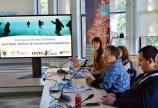
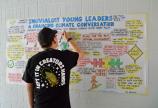
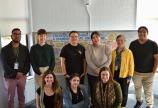
Videos
In this story
Keywords: climate change, climate, arctic, inuit, youth, climate action, arts, community, indigenous, sustainability, administrative, student life
People: Crystal Tremblay, Maeva Gauthier, Budd Hall


